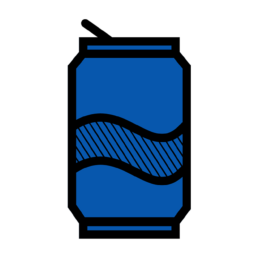Caffeine
Caffeine belongs to the group of stimulants, has an activating effect on muscle and heart activity in small doses and can improve the ability to concentrate in the short term. It is often used as a cutting agent for other substances such as speed. Excessive doses can lead to unpleasant side effects such as headaches, sweating, shortness of breath, nervousness, palpitations or sleep disorders.
In small doses, caffeine has an activating effect on muscle and heart activity by dilating the coronary vessels. By stimulating the cerebral cortex, the ability to concentrate can be improved in the short term. In some cases, caffeine is effective against headaches, but in other cases it triggers headaches in the first place. It also stimulates the excretion of urine.
The caffeine-specific effect leads to an increase in blood pressure and body temperature. After consuming large amounts of caffeine, the body often reacts with sweating, trembling, shortness of breath, nervousness, heart fluttering or sleep disorders. Headaches can occur due to the vasoconstrictive effect of caffeine on the cerebral vessels and the resulting reduced blood flow. Due to the non-specific activation of the entire organism, some people also react with anxiety after consuming caffeine.
After oral ingestion, the caffeine is distributed evenly in all body fluids and body regions. Caffeine acts primarily on the cerebral cortex, the part of the brain that is responsible for controlling attention, among other things, and here primarily on the so-called adenosine receptors. Without the influence of caffeine, adenosine inhibits the release of numerous different neurotransmitters, such as noradrenaline, dopamine, acetylcholine, glutamate or GABA. However, after you have consumed caffeine, the caffeine suppresses the effects of adenosine, which in turn leads to an increased release of noradrenaline, dopamine and all the other neurotransmitters. And when there is a lot of noradrenaline and dopamine circulating in your brain, you feel alert, energised and less hungry.
Long-term, excessive caffeine consumption can lead to physical dependence. After frequent caffeine consumption, the body reacts with tolerance: more must be consumed in order to feel similar effects again. This mechanism also explains the fact that heavy coffee drinkers can consume coffee even late in the evening without suffering from sleep disorders afterwards.
For people with cardiovascular problems, caffeine consumption can lead to additional strain on the body.
If you have high blood pressure, high cholesterol levels or diseases of the digestive tract, you should also refrain from consuming caffeine.
Mixed consumption with other "uppers", such as speed or cocaine, leads to a strong strain on the cardiovascular system.
Caffeine increases body temperature and has diuretic properties. Mixed consumption with ecstasy or speed increases the risk of overheating and major fluid loss.
Caffeine is one of the so-called stimulants, psychoactive substances that can stimulate the mind, have an activating and euphoric effect, but do not trigger any changes in perception. It is contained in coffee, tea and energy drinks, among other things. One cup of coffee contains between 50 and 250 mg of caffeine.
Due to their energising effect, energy drinks have long been part of the beverage range at events, clubs and bars. They usually contain varying amounts of guarana, taurine, caffeine, sweeteners and vitamins. The short-term energising effect is mainly provided by caffeine: one can contains between 80-160 mg of caffeine. If many energy drinks are consumed in a short period of time or in combination with other "uppers" such as coffee, speed or cocaine, overdose symptoms such as sweating, nervousness, trembling, restlessness, anxiety, cardiovascular problems or palpitations can occur.
Status: July 2022

